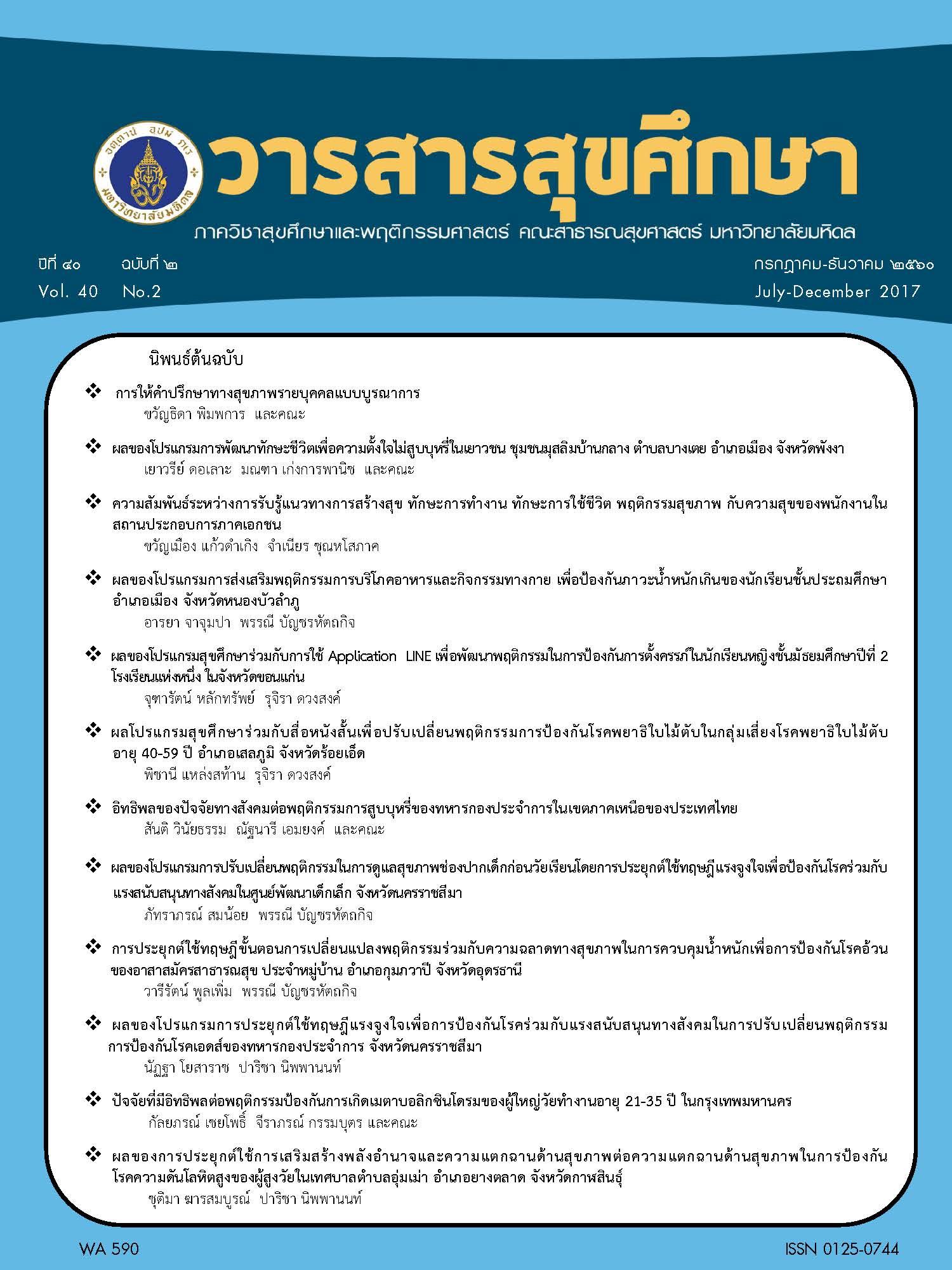Effects of Life Skill Development Program on Non-Smoking Intention in Youth of Banklang Muslim Community, Bangtoei Sub-District, Mueang District, Pang-Nga Province
Keywords:
Life skills development, Non-smoking intention, Muslim community youthAbstract
Life skills development provides young people with good life skills to face with smoking problems and to adapt themselves living in community environment that may lead to smoking initiation. This research aimed to measure the effects of life skills development programs on non-smoking intentions among youth in Banklang Muslim community, Bangtoei Subdistrict, Mueang District, Pang-Nga Province. This research was a one-group quasi-experimental design. Samples were 35 youths aged 13-15 years. Participants participated in the program activities applying Participatory Action Research (PAR) with six sessions of health education for 8 weeks. Data were collected after the 8th week and were analyzed by descriptive statistics, frequency, percentage, mean, Paired t-test and Z-test.
The results showed that after the experiment, the samples had an average mean of knowledge on cigarettes, attitude about cigarettes, critical thinking skills for cigarettes, decision making skills for non-smoking and problem solving, refusal skills without losing relationship and proportion of non-smoking intentions higher than before the experiment significantly (p <0.001), and also smoking self-efficacy skills (p=0.001). Moreover, the proportion of non-smoking intention was higher from 48.6% to 98.1% respectively (p<0.001). These results showed that the health education program had a positive effect on increasing knowledge, attitude, life skills and non-smoking intention among youth aged 13-15 years. Therefore, community, local health office, and school should develop the health education program that apply life skills, religious discipline and concept of Participatory Action Research (PAR) to make the community more involved to solve smoking problem among youth.



